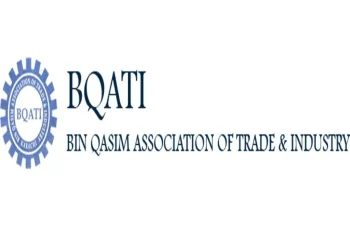ISLAMABAD: Experts on Saturday said the sugar industry is facing several challenges that impact its efficiency and profitability.
Talking to media here on Saturday, Khan Faraz, former Secretary Pakistan Tobacco Board said the challenges included cyclic nature of sugar production influenced by weather conditions, fluctuating sugarcane prices, and inconsistent government policies. Outdated technology and inefficient production processed further limit the industry’s competitiveness globally, especially as the international market increasingly adopts sugar substitutes and alternatives, he added.
Approximately 80% of world sugar is produced from sugarcane in tropical and subtropical climate with the remaining 20% is derived from sugar beet, which is grown mostly in the temperate zone on the northern hemisphere. The sugarcane is also an important cash crop of Pakistan. It is grown on a large area in the country, he said.
He said 124 countries produce sugar. India produced 33 million metric tons of sugar which is 19% of the world’s total sugar production of 179 million metric tons. Brazil has historically been the world’s largest sugar producer but ceded second place to India in the 2018-19 crop year. According to an international report, currently about 110 countries produce sugar from either cane or beet and 8 countries produce sugar from both cane and beet.
At the time of partition, there were only four sugar mills operating in Pakistan. The number of sugar mills has risen to 90 by now. Sugar is manufactured in these meals from sugar cane grown in the country. Also, some portion of the crop is used for the production of Gur especially in Khyber Pakhtunkhwa. The sugar industry is the second largest agriculture-based industry after textile. The sugar mills have capacity not only to produce sugar from home for home consumption, but also for export.
It merits a mention that sugar industry is a significant contributor to Pakistan’s economy, providing employment supporting rural development, and enhancing agricultural output. Pakistan ranks among the top ten sugar producers globally, with most of the industry in Punjab and Sindh provinces.
The country has about 90 sugar mills, all in the private sector which not only produce refined and raw sugar but also generate by-products such as molasses, baggasse and beet-pulp, used in various industries, and ethyl alcohol, which is mostly exported.
ISLAMABAD: Experts on Saturday said the sugar industry is facing several challenges that impact its efficiency and profitability.
Talking to media here on Saturday, Khan Faraz, former Secretary Pakistan Tobacco Board said the challenges included cyclic nature of sugar production influenced by weather conditions, fluctuating sugarcane prices, and inconsistent government policies. Outdated technology and inefficient production processed further limit the industry’s competitiveness globally, especially as the international market increasingly adopts sugar substitutes and alternatives, he added.
Approximately 80% of world sugar is produced from sugarcane in tropical and subtropical climate with the remaining 20% is derived from sugar beet, which is grown mostly in the temperate zone on the northern hemisphere. The sugarcane is also an important cash crop of Pakistan. It is grown on a large area in the country, he said.
He said 124 countries produce sugar. India produced 33 million metric tons of sugar which is 19% of the world’s total sugar production of 179 million metric tons. Brazil has historically been the world’s largest sugar producer but ceded second place to India in the 2018-19 crop year. According to an international report, currently about 110 countries produce sugar from either cane or beet and 8 countries produce sugar from both cane and beet.
At the time of partition, there were only four sugar mills operating in Pakistan. The number of sugar mills has risen to 90 by now. Sugar is manufactured in these meals from sugar cane grown in the country. Also, some portion of the crop is used for the production of Gur especially in Khyber Pakhtunkhwa. The sugar industry is the second largest agriculture-based industry after textile. The sugar mills have capacity not only to produce sugar from home for home consumption, but also for export.
It merits a mention that sugar industry is a significant contributor to Pakistan’s economy, providing employment supporting rural development, and enhancing agricultural output. Pakistan ranks among the top ten sugar producers globally, with most of the industry in Punjab and Sindh provinces.
The country has about 90 sugar mills, all in the private sector which not only produce refined and raw sugar but also generate by-products such as molasses, baggasse and beet-pulp, used in various industries, and ethyl alcohol, which is mostly exported.










 American Dollar Exchange Rate
American Dollar Exchange Rate